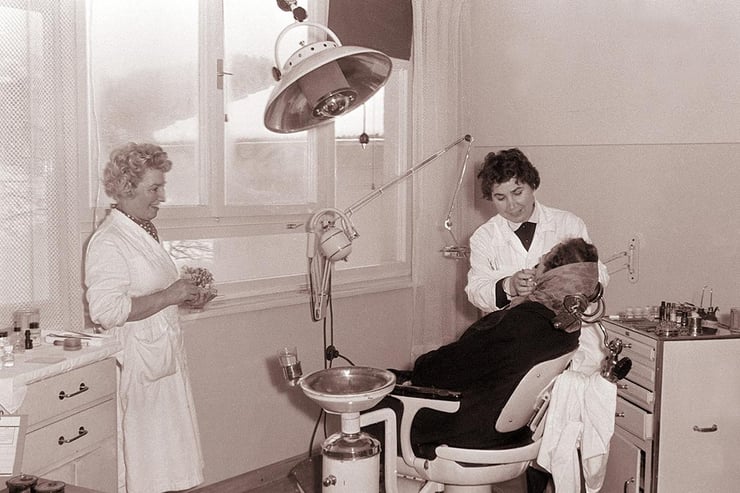The Future is Female: Women in Medicine
March is International Women’s Month, a time set aside to appreciate all the ways in which women continue to thrive, contribute, and achieve at a high level, often despite structural prejudices and inequalities. We’d like to observe International Women’s Month by reflecting on the history of women in medicine, a history that extends back to antiquity and stretches forward into a promising future.
In Ancient Times
For starters, it should be noted that, in virtually every culture throughout recorded history, women have been associated with caregiving. That doesn’t mean they have always received the opportunities they deserve to become physicians. However, even going back to ancient Greece, you’ll find evidence of women being trained to work as doctors. Metrodora, a woman who lived somewhere between 200 and 400 CE, is widely considered to be the first female doctor to be included in the historical record. She even wrote a book on women’s health, called On the Diseases and Cures of Women.
It should also be noted that there is plenty of evidence that women practiced as doctors in ancient Egypt, going back centuries before Metrodora. However, their names have seemingly been lost to the sands of time.
In Medieval Times
In medieval Europe, women received some limited opportunities to serve in medical roles… not necessarily as doctors, but more often as nuns and other “healers.” That’s because only women who committed to celibacy were allowed to train in the medical trade. Hildegard of Bingen, born in 1098, is one of the best-known healers from this era, known for developing remedies to common ailments and recording her findings in a series of influential writings.
In American History
In the history of the United States, there are a number of women who stand out as luminary figures.
You can’t recount the history of women in medicine, particularly in America, without mentioning Elizabeth Blackwell. She was the first woman to receive a medical degree from an American university, despite being discouraged by the very male medical community of her time. Initially disallowed to study with the men, she trained informally at the home of a local physician, earning her living as a schoolteacher. She ultimately applied to dozens of universities and was accepted into exactly one: Geneva Medical College in Geneva, NY.
Blackwell eventually received her MD in 1849, and opened her own clinic, providing care for poor women and children in the community.
One of her contemporaries was a woman called Harriot Hunt, who lobbied to be admitted into the medical program at Harvard University. The student body protested, but ultimately Hunt was able to obtain a degree in homeopathic medicine from a smaller university in Syracuse. Still another name to celebrate is that of Rebecca Lee Crumpler. She was the first African American woman, born in the United States, to earn a medical degree, achieving great things despite many layers of adversity and prejudice. Born in Delaware, Crumpler earned her medical degree from the New England Female Medical College in 1860. She practiced for a time in Boston before moving to Virginia; after the Civil War, she focused her practice primarily on caring for freed slaves.
We’ll close out our discussion by celebrating one more incredible woman: Mildred Jefferson. Though born in the South during the Jim Crow era, she made her way to Harvard, earning a degree from the medical college in 1951. She became the first Black woman to graduate from the revered institution.
In the Future
Nobody can deny that women enjoy greater opportunities to study and practice medicine than they did a century ago. With that said, the playing field is still wildly uneven. Women make up a little bit less than 50 percent of all medical school graduates, but they account for just over a third of all physicians and surgeons and only 15 percent of all medical school deans. When you zero in on women of color, the statistics are even grimmer.
So there is still much progress to be made, yet we are heartened to think about just how far we have come. We invite you to join us in striving for a world in which women are truly included in all levels of the medical profession and given every opportunity to exercise the gifts of healing and care.
Want to continue this conversation? Contact us at your convenience.



